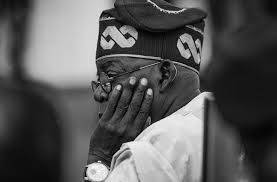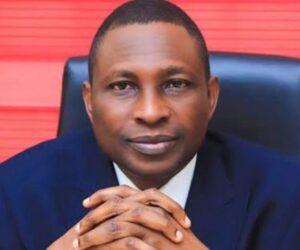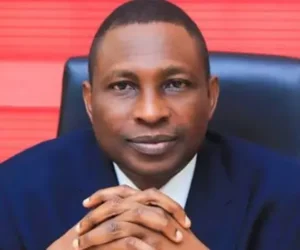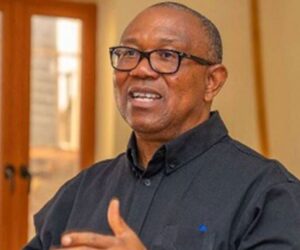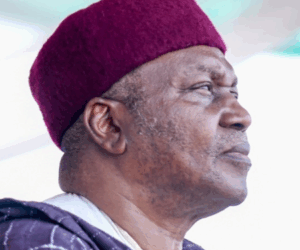The Nigerian civil service, both federal and state, is supposed to play a central role in shaping the country’s socioeconomic and political developments. Rooted in the tradition of transparency, accountability and stability put in place by the British colonial administration, the civil service is expected to be the pillar of the systems for the attainment of national goals and objectives. Ironically, Nigeria’s civil service is now found to be the harbinger of corruption that has frustrated national development, the welfare of the populace and battered Nigeria’s image among the comity of nations.
In recent months, the chairman of the Economic and Financial Crimes Commission (EFCC), Ola Olukoyede, has harped on the entrenched corruption in the civil service, as most corruption investigations involving politically-exposed Nigerians reveal roles played by senior civil servants.
In June this year, Olukoyede spoke about some of the discoveries made by the EFCC about the involvement of civil servants in frauds. He said: “This is the shocking truth Nigerians must wake up to. The volume of money stolen by establishment people, the so-called career civil servants, far exceeds what most politicians have stolen. From our investigation, it is clear that politicians cannot steal without the active collaboration of establishment insiders. Political appointees come and go, but these civil servants remain embedded, powerful and often untouchable.”
SPONSOR AD
Apart from the EFCC, the Independent Corrupt Practices and Other Related Offences Commission (ICPC) has investigated many civil servants’ involvement in procurement frauds and obtained convictions. In the process, houses built with the proceeds of fraud have been confiscated; fat bank accounts frozen; and there are instances in which some convicted civil servants went to jail. The categories of civil servants found to be involved in corruption or have colluded with politicians to carry out acts of corruption include but not limited to permanent secretaries, directors and other civil servants involved in the process. Many of the luxurious houses in Abuja are owned by civil servants. Unfortunately, there are no measures in place to question the sources of the wealth of their owners. The EFCC and ICPC probe such properties only when their investigative activities lead them to civil servants who own such properties.
Nigeria’s civil servants misuse their positions to acquire such wealth through various means, like procurement documents forgery and manipulation. They forge documents to account for projects that were never executed. Embezzlement and misappropriation of funds meant for public projects; inflation of project costs; officials often demand bribes before performing duties such as issuing permits, processing payments or approving contracts; bribery and kickback before performing official roles; collection of salaries for ghost workers and pensioners and the like.
The country has embarked on all sorts of reforms to deal with corruption in the civil service and public procurement, but the cankerworm of corruption is yet to be removed from the system. The era of former President Olusegun Obasanjo, from 1999 to 2007 witnessed the highest number of civil service reforms tailored towards monetisation of benefits, downsizing and anti-corruption. Apart from establishing the ICPC, EFCC, the Code of Conduct Bureau and the like, the Obasanjo government enacted the Public Procurement Act of 2007, which was supposed to be a landmark legislation designed to overhaul how public funds are spent and ensure transparency, accountability and value for money in government procurement processes. If these legal instruments have dented the preponderance of corruption in the civil service, it has not done so significantly.
The common excuses advanced for the massive corruption in the civil service are poor remuneration and unrealistic pension being paid to retired civil servants.
While we advocate better compensation for those who are at the heart of the country’s bureaucracy, it must be stressed that it is totally unacceptable for civil servants to rock the boat, frustrate government policies, destroy the systems and supervise the collapse of all sectors simply because they are poorly paid.
The funds stolen by civil servants are meant to standardise our health care, education, public utilities, roads and other social infrastructure. The efficiency and otherwise of civil servants directly affects citizens’ quality of life. They play such a central role in the country’s fate that we must not allow the current trend of corruption to continue unchallenged. The funds being stolen by top civil servants, if stopped, may be enough for the payment of living wage to all strata of the civil service.
Expectedly, politicians in the executive and legislative arms of government who benefit from corruption in the civil service may be reluctant to address this issue. But we insist that the level of fraud in the country deserves an emergency treatment. It is so massive that the anti-corruption agencies cannot deal with them decisively, considering the quantum of funds available to suspects to pay the best lawyers’ fees, buy over prime witnesses and even circumvent the justice system. However, all Nigerians, civil society organisations and well-meaning National Assembly members must join the campaign against corruption in the civil service. We need fresh modalities to deal with this emergency. That will begin with anti-corruption agencies carrying out diligent investigations and the judiciary being forthright in ensuring that those involved in corruption are severely punished as deterrence to other civil servants.
We must marshal such measures to reorient our civil servants towards selfless service delivery. This is crucial for Nigeria’s progress.

